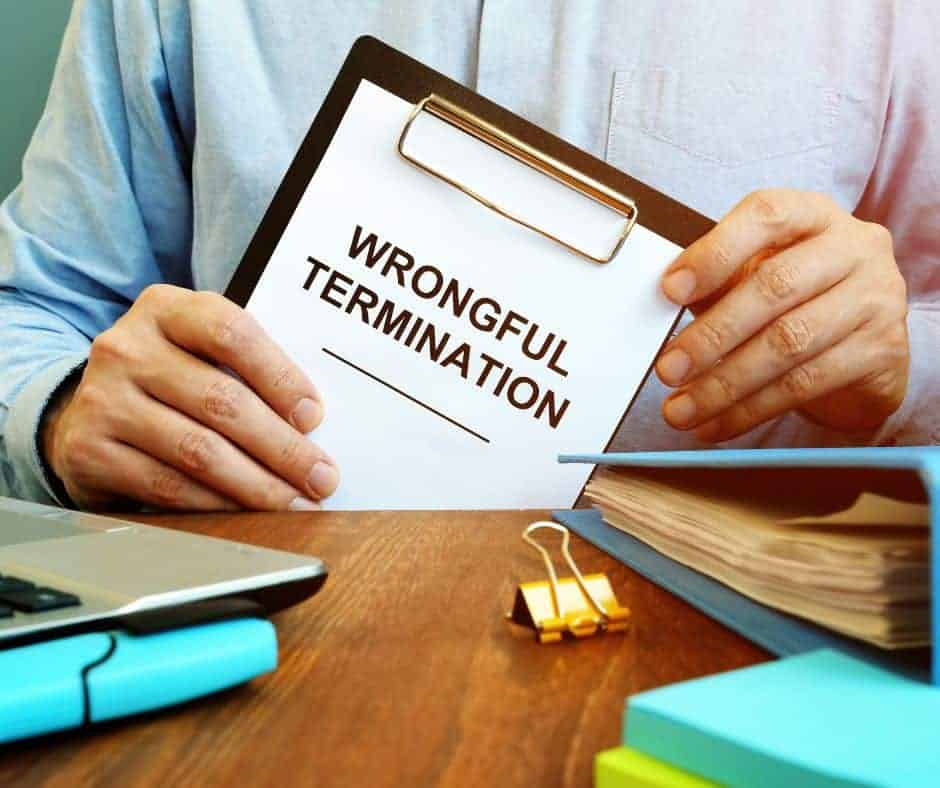Attorney advertisement by Edwin Aiwazian of Lawyers for Justice, PC, headquartered at 450 N Brand Blvd, Glendale, CA 91203
Losing a job is a devastating event that can have long-ranging consequences for employees and their families. Dealing with a sudden termination is all the more challenging when your employer fires you for unfair or undeserved reasons.
Many unexpectedly dismissed employees wonder if they could have a legal case against their company. In California, employers who fire workers for specific illegal reasons can be penalized for practicing wrongful termination. However, how do I know if I was wrongfully terminated? employees often ask.
This blog post will explain how employees can recognize the warning signs of wrongful termination. We’ll point out some common red flags to look out for and discuss the steps to prove you’ve been wrongfully terminated.
How Do I Know If I Was Wrongfully Terminated?
An employee experiences wrongful termination when the reason their employer gives for firing them violates California or federal law.
In California, most employees are considered “at will,” meaning your boss can legally fire you for almost any reason, even if it is petty or based on a misunderstanding. However, there are some situations when employers can’t fire even at-will employees without facing potential legal consequences.
Let’s look at five situations when your dismissal could be a case of wrongful termination.
1. You Reported Illegal Activity
California law protects employees who speak out about unfair or unlawful workplace misconduct. Retaliation of any kind against employees who report suspected wrongdoing is illegal, including retaliation for:
- Whistleblowing to legal authorities about unlawful conduct,
- Complaining about discrimination in the workplace,
- Reporting hazardous working conditions to Cal/OSHA, and
- Filing a wage claim due to underpayment of minimum wage.
If you complained about your coworker or employer’s bad acts shortly before being let go, your firing could be a form of illegal retaliation.
2. You Requested Family or Medical Leave
California employees have the right under the Family and Medical Leave Act (FMLA) and California Family Rights Act (CFRA) to request time off for certain family and health events. It’s illegal for employers to fire employees who exercise their legal right to qualified leave time under these federal and state laws. You could have a wrongful termination case if you’re dismissed after requesting or taking a leave of absence.
3. You Experienced Discrimination
Firing someone because of their identity status or personal characteristics is illegal discrimination. California civil rights law bans basing employment decisions like hiring and firing on an employee’s:
- Race,
- Gender,
- Religion,
- Age (if over 40),
- Pregnancy status,
- Sexual orientation,
- Citizenship status,
- Disability, and
- Other protected traits.
If you experienced mistreatment based on identity traits in your job, that could be a sign that discrimination was a motive for your dismissal. Another red flag is if you were fired shortly after telling your employer about your pregnancy or a medical condition.
4. You Experienced Sexual Harassment
Have you faced unwanted romantic attention or sexual advances at work? A pattern of sexual harassment can also be a warning sign that your employer may have had unlawful motives in your firing. If you were let go after refusing an employer or coworker’s unwelcome sexual conduct, you might be the victim of wrongful termination as well as sexual harassment.
5. You Have an Employment Contract
An employment contract outlines the specific terms and conditions that govern your job. Some contracts require employers to follow certain procedures or have sufficient “cause” to fire someone. If your employer terminates you without following the rules in your employment contract, your firing could be unlawful. For example, suppose your employment contract says your boss must provide a specific, business-related reason for firing you. If your employer repeatedly refuses to explain why they are dismissing you, they could be violating the terms of the contract. When you’re wrongfully terminated through breach of contract, your employer may owe you compensation or reinstatement if you take legal action.
How Do You Prove Wrongful Termination?
You must provide evidence that your firing violated state or federal law to prove wrongful termination. Gather as many records, documents, and messages as possible before you lose access to your work files and email login. A paper trail is essential to show the illegal motivations behind your firing. Some valuable types of evidence include:
- Emails, letters, or memos between you and your boss or HR—a record of communication is crucial if you suspect that your firing was an act of pregnancy discrimination, medical leave retaliation, or backlash for reporting bad behavior;
- Performance reviews and records of promotions and pay raises—these can help challenge your employer’s attempt to cover up illegal motives with claims that your firing was based on poor performance;
- Your employment contract and employee handbook—to illustrate that your employer failed to follow proper procedure according to the legal terms of your employment; and
- Contact information for your manager, coworkers, and potential witnesses—testimony from eyewitnesses to discrimination, harassment, or other relevant events in the workplace can support the credibility of your claims.
Having your employer’s official justification for your firing in writing is also a good idea. You can contact your HR department and request a formal letter summarizing the reasons for your dismissal. If your employer ignores you or is vague in their answer, you could use that when building a potential case against them.
A Wrongful Termination Attorney Can Help You Protect Yourself
Feeling overwhelmed, frustrated, and angry is normal after being fired. Reaching out to a legal professional can help you handle the emotional turmoil of a sudden dismissal—especially if you suspect your termination was unlawful. Ultimately, an employment attorney is the most qualified person to help you understand your legal rights as an employee. A skilled lawyer can evaluate your situation and help you identify if your employer broke the law. If your firing was illegal, an attorney can help you understand your options for taking legal action.
For over a decade, Lawyers for Justice, PC has been helping unlawfully dismissed employees hold employers accountable for their wrongdoing. Our attorneys have built a reputation as aggressive and dedicated advocates for California’s workers. Since 2008, we’ve fought in and outside of court to help our clients recover financial compensation for firings motivated by whistleblower retaliation, disability discrimination, and more. If you’re grappling with the aftermath of an undeserved dismissal, call our office to speak to a legal advocate—initial consultations are always free.
Attorney advertisement by Edwin Aiwazian of Lawyers for Justice, PC, headquartered at 450 N Brand Blvd, Glendale, CA 91203
Think you deserve justice?
-
Get a Free Case Evaluation
-
Retain Service with No Upfront Cost
-
Get the Justice You Deserve
-
No Win, No Pay









